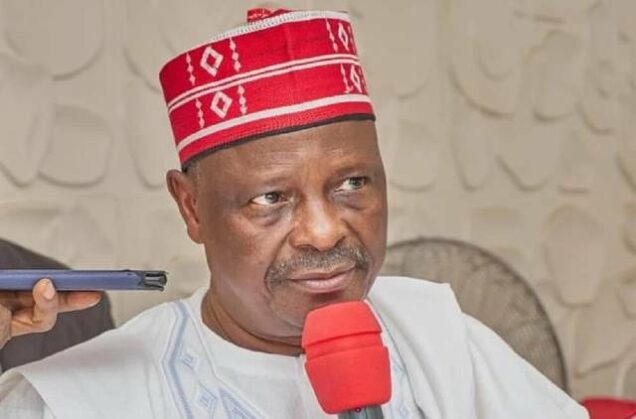Latest News
Kwankwaso’s Next Move Sparks Suspense as Political Defections Continue to Shake Nigerian Politics

As political defections continue to capture the spotlight, fresh drama unfolded yesterday surrounding the potential departure of Dr. Rabiu Musa Kwankwaso, the leader of the Kwankwasiyya movement, from his current political platform.
Abba Kabir Yusuf, Governor of Kano State and a close associate of Kwankwaso, fueled the speculation during a meeting with 484 councillors across the state’s 44 local government areas. While Yusuf stopped short of confirming Kwankwaso’s next political move, he made it clear that he would follow his mentor wherever his journey leads.
Yusuf, who has been a loyal ally of Kwankwaso, spoke highly of the former presidential candidate, describing him as a political icon whose advice has always yielded positive outcomes. “Wherever he goes, we are ready to follow,” Yusuf affirmed, echoing the sentiments of Kwankwaso’s supporters, who eagerly await his next step. The Kwankwasiyya leader, who ran for president under the New Nigeria Peoples Party (NNPP) in the 2023 elections, has yet to make any official statement on the matter, adding to the mounting intrigue.
This revelation comes amid political turmoil, including the recent defection of Delta State Governor Sheriff Oborevwori and former Governor Ifeanyi Okowa from the Peoples Democratic Party (PDP) to the All Progressives Congress (APC).
In his address, Yusuf also addressed allegations made by former Secretary to the State Government (SSG) Dr. Abdullahi Baffa Bichi, who accused Kwankwaso of receiving N2 billion monthly from the state’s treasury. Yusuf dismissed these claims as baseless, suggesting that Bichi might be struggling with a mental condition. He condemned the rise of “petty politics” and the media’s focus on personal attacks.
RELATED STORIES
“Tinubu Won’t Fall Like Jonathan”– APC Vows Not to Let Insecurity Cost 2027 Election
North Central’s 2027 Demand Stirs Trouble—APC Reacts
“We will not tolerate insults against our leader,” Yusuf declared, stressing that his administration is built on trust and accountability. He urged residents to remain committed to serving the people and pledged to take action against local radio stations spreading defamatory content.
Meanwhile, the speculation around Kwankwaso’s political future has intensified with the resignation of Oseloka Obaze, a prominent figure in the Labour Party (LP). Obaze, a former United Nations diplomat and close associate of LP’s presidential candidate Peter Obi, resigned in protest of the party’s controversial governorship primary election in Anambra. Obaze criticized the election for irregularities and accused the party’s leadership of failing to address internal conflicts. His resignation has left his political trajectory uncertain, though it adds to the ongoing political realignment.
Amidst the growing defection drama, former presidential aspirant Dele Momodu raised concerns about the shifting political landscape, particularly the rush of politicians joining the APC. Speaking on News Central, Momodu criticized the lack of ideological consistency in Nigerian politics and warned that such defections might skew President Bola Tinubu’s perception of his administration’s performance. He noted that the ease with which politicians switch allegiance undermines public trust in the political system, calling it a troubling feature of Nigerian politics.
Also commenting on the defections, Dumebi Kachikwu, the presidential candidate for the African Democratic Congress (ADC) in 2023, expressed disappointment in opposition parties for failing to unite and form a strong coalition. He pointed out that personal ambitions and internal divisions, particularly within the PDP, had undermined the opposition’s chances in the last election.
Looking ahead to 2027, Kachikwu expressed skepticism about the potential for a successful opposition coalition, citing the involvement of “disgruntled politicians” and the reluctance of Northern politicians to embrace a Southern presidential candidate. He also criticized the media for marginalizing lesser-known candidates during the 2023 election, further highlighting the challenges facing alternative political movements in Nigeria.
